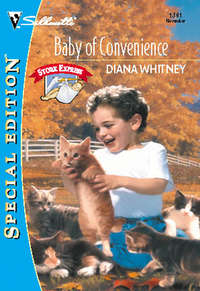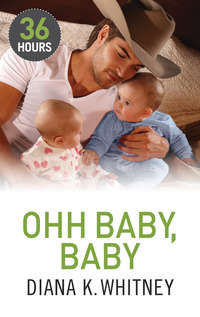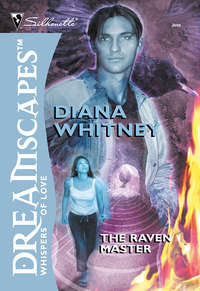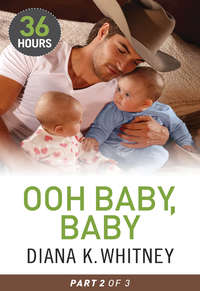
Полная версия
A Dad Of His Own
“Yes.” A whisper more than a word. “A long time.”
He wanted to sweep her into his arms. He wanted to beg her forgiveness for having abandoned her so very long ago. He wanted to heap blessings and gratitude upon her for having gifted him with such a precious son. Most of all he wanted to know why he couldn’t remember ever having laid eyes on her.
This was a woman no sane man could forget.
Then again. Nick Purcell’s youth had been anything but sane. Town bad boy, blamed for everything and responsible for much, he’d been an angry adolescent who’d risen above poverty and abuse by having removed most of it from his mind. He could barely remember those years, didn’t want to remember them. That was his cross to bear, not this lovely woman’s. Clearly he’d hurt her enough. Nick would rather gnaw off his own arm than cause her more pain by confessing his own failure of recall.
“It’s wonderful to see you,” he told her, and meant it.
She swayed slightly, those gorgeous eyes so wide the China-blue pupils were completely surrounded by white. Lush lips quivered, moved slightly.
A sob, a sniff, a small hand clutched his sleeve. “I knew you’d come, I knew it.”
Dragging his gaze from the trembling woman, Nick knelt before the child whose eyes, as blue as his mother’s, gleamed with moisture and excitement. Words choked in Nick’s throat, caught behind a lump of emotion. Gazing into the face of his child was like a religious experience. His heart felt swollen, raw. His son, his flesh and blood. It was the proudest moment of his life. And the most poignant.
Bobby’s chin quivered. “Are you really my dad?”
In the breast pocket of his suit coat, a folded birth certificate forwarded from the St. Ives Law Firm burned over his heart. “Yes, Bobby, I’m really your dad.”
“Don’t go away again.” A tear slid quietly down his small cheek. “Please don’t go away.” With that, the child threw himself into Nick’s arms, sobbing.
Nick hugged him fiercely. “I won’t,” he whispered, barely about to choke out the words. “You’re my son, and I’ll never leave you. Never.”
The woman issued a strangled gasp. Nick barely heard it.
This wasn’t happening.
Icy fingers of fear closed around Chessa’s throat. Terror choked her dry. Dear God, she prayed silently. Let this be a dream.
Across the room that man, that horrifying phantom from the past, knelt down to gaze at her beloved child as if regarding a small god. In a blatant display of mutual veneration, Bobby focused on his newly discovered father with an expression of utter adulation that quite frankly drove a stake through Chessa’s heart.
For over nine years Bobby’s happiness had been the driving force of her life. Nothing else had mattered. Chessa had completely devoted herself to meeting her son’s emotional and physical needs. She’d thought it had been enough. It hadn’t.
That hurt.
There was more, so much more. Bobby didn’t understand, couldn’t understand, that what he clearly believed to be the happiest moment of his life was in reality the worst thing that could possibly have happened. The joy in his young eyes would soon be replaced by pain and loathing. Chessa couldn’t allow that to happen but didn’t know how to stop it.
With a choked cry she spun back into the kitchen, staggered to the sink. Bracing herself, she gasped for breath, propped herself against the counter with widespread, trembling arms. Perhaps this was all a hoax, a cruel joke played by an impeccably groomed imposter wearing Italian loafers and a designer suit that probably cost more than her monthly mortgage. After all, the vision of prosperity in her living room bore little resemblance to the angry young man she remembered, the sullen adolescent in low-slung jeans and trademark black T-shirt with the sleeves torn out.
The young Nick Purcell had been wild, rebellious, always on the cutting edge of trouble, with a doleful James Dean sex appeal that teenage girls had found irresistible. He’d been the subject of gossip, whispers, speculation, and had been rumored to enjoy a love life more active than a rock musician.
Every town had at least one bad boy. The central California farming community where Chessa grew up had more than its share, although Nick Purcell had been far and away the most notorious. It was in the blood, folks had said. Like father, like son.
Like father. Like son.
“Chessa?”
She spun around, faced him with terror in her heart. Her chest heaved as she struggled for air. She blinked rapidly. The image did not disappear.
He was there. He was real.
Extending a hand, Nick started to speak, then dropped his arm to his side with an anguished expression. His gaze flickered around the neat kitchen to settle on the plate of half-eaten pizza on the table. He smiled. “Sausage and mushroom,” he murmured. “It’s my favorite, too.”
Chessa found her voice. “Why are you here?”
The smile faded, tucked itself back into a face that was stronger than she remembered, but just as handsome. A square jaw. Perfect nose. Lips that were both virile and vulnerable, and dark eyes beneath a swath of brow that gave him a uniquely brooding appearance.
His sigh was nearly imperceptible, more sad than impatient. “I had to see him.”
She closed her eyes, clamped her lips together. This wasn’t happening. It wasn’t.
Pivoting around, she snatched a paring knife off the counter, grabbed an apple and carved frantically. “You had no right to come here.”
“He’s my son.”
Breath caught in her throat. She closed her eyes, bit her lip, then refilled her lungs and dug the paring knife into the pale fruit flesh to shape the bridge of the nose, the gouge of a mouth. “Bobby is my son, not yours.”
A moment of silence. When Nick spoke again, she realized he’d moved closer to her. “I don’t blame you for being angry. I should have been there for you. I’m sorry I wasn’t.”
The knife hovered over the partially carved apple. She chanced a glance over her shoulder, regretted it instantly. The expression on his face was one of guilt and torment.
He covered his pain quickly, clasping his hands behind his back the way a powerful man does to display command of an uncomfortable situation. “I wish you’d been able to tell me about our child. Of course, I understand why you couldn’t.”
Caution deadened her voice into a dull monotone. “Precisely what is it that you understand, Mr. Purcell?”
Raising his chin a notch, he twisted his mouth in a type of a shrug. “Calculating back from the date of Bobby’s birth, I realize that I’d already left town before you could possibly have known you were pregnant.”
She couldn’t have been more shocked if he’d punched her. “How do you know when Bobby was born?”
Apparently baffled by the question, he retrieved a folded sheet from his breast pocket, stepped forward to display it.
A moment before the room started to spin, Chessa recognized the copy of her son’s birth certificate. Without realizing that she still held the paring knife, she absently clasped her trembling hands, oblivious to the sting until Nick sprang forward.
“You’ve cut yourself.” Alarmed, he dropped the document, pried the paring knife from her hand, then snatched a tea towel from the counter and pressed it to the superficial wound. His touch was warm, firm, exquisitely gentle. “Do you have any bandages?”
“That isn’t necessary.” She pulled away, feeling strange. “I’d like you to leave now.”
A peculiar sadness shadowed his gaze. “You know I can’t do that.”
“Of course you can. You’re good at leaving.”
The snap in her voice jarred him. He stepped back, regarding her with unnerving intensity. “I understand how you feel.”
“No, you don’t.” She hated the frantic quaver in her voice, the high-pitched hysteria hovering at the back of her throat. “You can’t possibly understand. Please, please, I’m begging you, just go away and leave us alone.”
His eyelids fluttered shut, and she saw a scrape of white as his teeth grazed his lower lip. A shudder moved through him. When he opened his eyes, he regarded her with a peculiar hesitance. “Chessa, you have every right to be hurt, and to feel abandoned. I want to make that up to you.”
“You can’t.”
“I can try.” As she tried to turn away, he touched her arm, and the warmth radiated from his fingers like a small flame. “I want you to know that—” he paused for breath “—that you were always special to me.”
Chessa stiffened. “Excuse me?”
He licked his lips, tried for a smile that didn’t quite make it. “What we had together, what we shared was very special.”
All she could do was stare at him in utter awe. How gallant of him, she thought, to fake memories that didn’t exist about a relationship that never happened. Until five minutes ago, Chessa Margolis and Nick Purcell had never even met.
Chapter Two
During the few minutes it took for Chessa to retrieve an adhesive strip and bandage her hand, her mind was in chaos. There was no easy escape from the tangle of lies. Truth was the only option now, a truth that would deeply disappoint the son she adored. Postponing the inevitable would only intensify his disillusionment.
There was no choice, of course. Chessa knew that, and gathered her courage for what was to come. A deep breath, a silent prayer, and she faced the stranger in her kitchen. “We have to talk.”
Nick glanced up. “Isn’t it easier just to slice them?”
“Slice them?” She followed his gaze to the partially sculpted fruit draining on a paper towel. “Oh, the apples aren’t for pie. I sculpt them into novelty dolls as part of my craft business. Creations by Chessa.” To her horror, high-pitched laughter bubbled off a tongue quite clearly out of control. “It’s not a big business, of course. Just spare time. I make wreaths out of dried foliage, too. And holiday decorations, of course.”
“I see.” Clearly he didn’t see at all, although a distinctly amused glint lightened an otherwise dark gaze. “Are all of your apple faces as grumpy as this one?”
A glance at the sculpture in question revealed deep-set eyes beneath a slash of intense brow, a slightly imperfect nose above a mouth more detailed and exquisitely carnal than any she’d sculpted before. It was without doubt the scowling, apple-carved equivalent of Nick Purcell himself.
“Are you all right?”
Her head snapped around. “Of course.” She took a step back, her gaze darting to the window beyond which her excited son was telling every child in the neighborhood about his newly discovered father. A wave of nausea folded her forward.
“You’re ill.” Instantly concerned, Nick helped her to a chair, brought her a glass of water, then seated himself across the table from her.
She sipped the water, keeping her eyes closed until the sickness passed.
“Are you pregnant?”
Her eyelids snapped open. “I beg your pardon?”
“I’m sorry.” Having the grace to look embarrassed, he pushed away Bobby’s plate of half-eaten pizza and heaved a strained sigh. “It’s none of my business—”
“You’re right, it’s none of your business, I am none of your business, and my son is none of your business.”
“That’s where you’re wrong.” Although his voice was mild, a bolt of danger erupted, displayed by the subtle clench of his jaw, the warning twitch of his mouth. “Bobby is also my son. That makes him my business.” A flash of anger, a striking image of defiance and danger that, for a fleeting moment, echoed the passion of his youth.
Then he blinked and it was gone, replaced by the circumspect comprehension of a man experienced in exercising absolute dominion over his own emotions. He adjusted his cuffs, a gesture Chessa perceived as a delaying tactic by one who disliked losing control.
Feeling hollow inside, she twirled the glass between her palms. “This has all been a terrible mistake.” She barely recognized the guttural croak as her own voice. “It’s my fault, of course. I don’t expect you to forgive me, but I have to explain—” She gasped as Nick reached across the table to cup his hands around hers, squeezing them between the warmth of his palms and the coolness of the glass. His touch was firm yet tender, so warm that the heat radiated up her arm to tingle at the pulse in her throat.
Compassion softened his features. Regret clouded his eyes. “I’m the one who begs forgiveness. If I’d known, if I’d realized that—” he paused, clearly confused and struggling for words “—that our time together had resulted in a child, I never would have left. You must believe that.”
Groaning, Chessa could only shake her head. “No, no, you don’t understand.”
“Yes, I do,” he insisted, and confirmed that by squeezing her hands. “That was a foolish time in my life. I did things I’m not proud of, things I deeply regret I was angry and impulsive, resentful of those who had the kind of family life that I could only dream about. I acted out what was expected of me. It was all I knew at the time, all that I’d been taught.”
A poignant ache spread behind Chessa’s ribs. Memories flooded back, rich and textured, the distant image of a sad young man with no joy in his eyes, the lonely adolescent who’d become a man long before he was ready.
Everyone in town had known Nick as Crazy Lou’s kid. According to local lore, Lou Purcell had always been down on his luck, a less-than-ambitious fellow who’d tried to support his family with a variety of jobs that for one reason or another had never worked out When his wife died, Lou stopped trying and started drinking. Chessa thought Nick had been about twelve at the time.
Pitied at first, the bereaved youngster had been subjected to whispered speculation about bruises he couldn’t hide, the constant hunger in his eyes. Over the years, Nick had grown taller, angrier, wilder. Eventually town gossip turned from sympathy to condemnation. The apple doesn’t fall far from the tree. Rotten to the core. Like father, like son.
From Chessa’s perspective, Nick had done everything humanly possible to prove them right. He’d hung with a rough crowd, faced his detractors with swaggering bravado and garnered a reputation for never turning his back on a fight.
For some reason, girls adored him. At the time, Chessa hadn’t understood the attraction. He’d been handsome enough, but there was always an aura of danger about him that she’d found personally offputting. They’d never spoken to each other. She doubted he’d even noticed her. It hadn’t been difficult to keep her distance, since he’d been two years ahead of her in school. Even so, most of her female classmates swooned whenever the town bad boy sauntered past, and by the time he was a senior in high school, townsfolk had been willing to believe any sordid story attributed to him, no matter how skimpy the source.
When he finally skipped town one step ahead of the law, most folks said good riddance, and presumed they’d seen the last of Nick Purcell.
Which is exactly why his name had been chosen for her son’s birth certificate. Now Chessa had to explain it to him. She didn’t have a clue how that could be done, particularly since she barely understood it herself.
“Mr. Purcell,” she began, amending it when he hiked a brow. “Nick.” She swallowed, extracted her hands from beneath his and folded them in her lap. “I made a terrible mistake ten years ago, and I regret it.” The shock in his eyes stung her. She quickly looked away. “I never meant for you to be involved in this.”
His gaze narrowed. “In other words, you never meant for me to know about my own son.”
Shaking her head, she sighed, pinched the bridge of her nose. God, this was difficult. “Bobby is not—”
An envelope was dropped on the table, an envelope with Nick’s name printed in an all-too-familiar childish scrawl.
Stunned, she straightened, staring at the item as if it were a ticking bomb. “What is this?”
“Read it.”
Every fiber of intuition in her body forbade her to do so. She didn’t want to know what was inside, didn’t want to open this paper Pandora’s box that she instinctively realized would turn her life, and the life of her son, completely upside down.
It was too late for caution. Nick Purcell was here. Their lives had already been irreversibly altered. All she could do now was minimize the damage. Perhaps the contents of this envelope held a clue as to how she could do that.
Trembling, she extracted a folded sheet of lined paper. One edge was ragged with circular tatters, as if torn from one of the spiral notebooks Bobby favored for his schoolwork. She carefully opened the letter and started to read:
Dear Dad
Hi. My name is Bobby. I’m your son. I don’t know how come you never come visit me. I figured maybe it is because you don’t know where I am.
The reason I am writing you is because my school is going to have a father-son picnic next month. It will be real fun if you can come. If you don’t want to, that is okay, but I don’t want to borrow other people’s dads anymore so I will just watch TV. We have a real cool TV. Mom bought it last year. It is not very big, but I like it anyway.
I think about you all the time. What do you look like? Are you real tall? Do you like to play soccer? Mom promised she would tell me all about you when I got big. I am big now. I wish she would tell me, but it makes her sad.
I hope you can come to the picnic. I love you.
Your son, Bobby Margolis
Their address and phone number had been carefully printed at the bottom of the page.
Moisture gathered in Chessa’s eyes, blurring the lines. “Where did you get this?”
“It was couriered to me from a San Francisco law firm, along with a copy of Bobby’s birth certificate.”
“San Francisco? I don’t understand.”
“Neither did I.” He leaned back, regarding her thoughtfully. “So I called the law firm and spoke to Bobby’s lawyer.”
“Bobby doesn’t have a lawyer.”
“Oh, but he does. One Clementine Allister St. Ives, Esq. She claims Bobby has put her on retainer to handle his affairs. Don’t worry,” he added when Chessa’s jaw dropped in disbelief. “I’ve checked it out. Ms. St. Ives is quite legitimate, a highly regarded family-law attorney with a fine reputation in the community.”
Chessa pushed away from the table. “This is madness. My son is nine years old, for heaven’s sake. He doesn’t need an attorney, he doesn’t have any ‘affairs’ to handle, and he’s never even been to San Fran—” the memory of a recent school outing popped into her mind “—cisco,” she finished lamely. “Good grief. His class museum trip.”
“Apparently.” Tucking the letter back into his pocket. Nick relayed what he’d learned about how Bobby had sneaked away from his classmates, taken a cab to Clementine’s office and hired her to find the man whose name graced his birth certificate.
With every word Chessa’s heart sank lower in her chest. Over the years she’d pushed the memories away, always believing she’d never have to face what she’d done, what she’d been forced to do. She’d thought her son was happy, that the life she’d struggled to create for him had been enough.
It hadn’t been enough. The pain and loss expressed in his letter had proven that. How could she tell her son that the father he’d searched for, the father he’d dreamed about all his young life, didn’t even exist? Tears swelled, spilled down her cheeks. She couldn’t stop them.
“Chessa, please, don’t cry. It’s all right.” Reaching across the table, Nick slipped his thumb beneath her chin, a touch so gentle it made her heart ache. “You don’t have to do this alone anymore. I’m here now. I can help.”
Her breath backed into her throat, nearly choking her. There was something miraculous in his eyes, a poignancy and compassion the depth of which she’d never seen. It soothed her, comforted her, made her feel as if everything might be all right after all. It wouldn’t be, of course. It couldn’t be. But at that moment Chessa wanted desperately to believe.
A jarring slam broke into her reverie. “Dad, Dad!” Muffled thuds shook the living room floor as a dozen sneakered feet stomped into the house. Bobby skidded into the kitchen, followed by a sweating group of his buddies. “Dad, Dad, Danny wants to see your gun!”
“Gun?” Chessa’s head snapped around. “What gun?”
Nick, too, seemed perplexed. “I don’t own a gun.”
Crushed, Bobby avoided Danny’s smug grin. “But I thought private investigators always carried guns.”
“I’m not a private investigator, son.” Smiling, he shifted in his chair, laid a paternal hand on the boy’s shoulder. “I own a private security business. We install alarm systems, communication equipment, that kind of thing.”
“Oh.” Clearly disappointed, the child managed a brave shrug. “That’s kinda cool, I guess.” He brightened. “Do you like to play soccer? You wanna come outside and see my bike? There’s a really neat park down the street. You wanna go there? And Danny’s got a swell dog. He knows how to shake hands and roll over and everything. We could play with him, if you want. Oh!” Bobby grabbed Nick’s hand, half hauled him to his feet. “You’ve gotta come up and look at my room! I’ve got all kinds of neat car models and some airplanes. Do you like Star Wars? I’ve got a real Jedi Knight light saber!”
Before Nick could respond, he was surrounded by the gaggle of chattering children and hustled away. A moment later the front door slammed again. The house fell into eerie silence. Chessa was alone. Alone with her fears, alone with her memories, alone with the crushing guilt.
“I know about the bid opening tomorrow morning, Roger. I’ll be there.” Shifting the cellular phone, Nick paced around the sofa in Chessa’s small living room, using his free hand to riffle through his appointment book. “Have my secretary reschedule all appointments to end by two o’clock on Tuesdays and Thursdays for the next ten weeks.”
“Impossible.” Roger Barlow’s voice was thin and strained, as always, and high-pitched with the stress of being second in command for a business growing faster than a paranoid pragmatist could comfortably handle. “We’re meeting with the CEO of National Technologies on Thursday to pitch a marketing strategy for outfitting their corporate headquarters and three satellite manufacturing facilities. That contract could be worth a half million dollars. We can’t reschedule.”
Barlow was a good man, with a by-the-book persona that provided needed balance to his own loosely creative management style. His constant whining was irritating, but Nick respected his business acumen. “If it can’t be rescheduled, you’ll have to handle the meeting yourself.”
“Me?” The poor man’s voice squeaked like a rusty hinge. “I don’t know a surveillance cam from a zonal keypad. I’m only a lowly finance director. You’re the technology guru. Without you, there is no meeting.”
That was true. Nick had always been good with electronics, he had put himself through college installing alarm systems designed by others. Now he designed his own systems and had built a successful company from the ground up.
“Okay, fine. Cancel the meeting.”
“Cancel it? Have you lost your mind? What in hell could be more important that a half-milliondollar contract?”
“Soccer.”
The poor man sputtered as if he’d swallowed a peach pit, but Nick was distracted by voices upstairs, where Chessa was explaining that Bobby couldn’t stay up any later because it was a school night. The frustrated boy was pleading his case, quite eloquently at that, insisting it wasn’t every day a kid got to meet his very own father.
Nick’s chest tightened. He was suddenly impatient with Roger’s nattering on about meetings and money as if there was nothing more important on earth. A week ago Nick might have agreed with that. Today he knew better.
Today he was standing in a home filled with odd bric-a-brac, decorative crafts and unique furnishings that would have appeared garish in less-talented hands. Chessa clearly had a knack for creating character out of chaos. A giant cable spool had been turned into a telephone table from which huge, dried flowers bristled in an oddly appropriate wilderness bouquet. Coats by the front door dangled from the plywood antlers of a Bullwinkle cartoon character, five feet high and lacquered in primary colors bright enough to make the eyes bleed.







